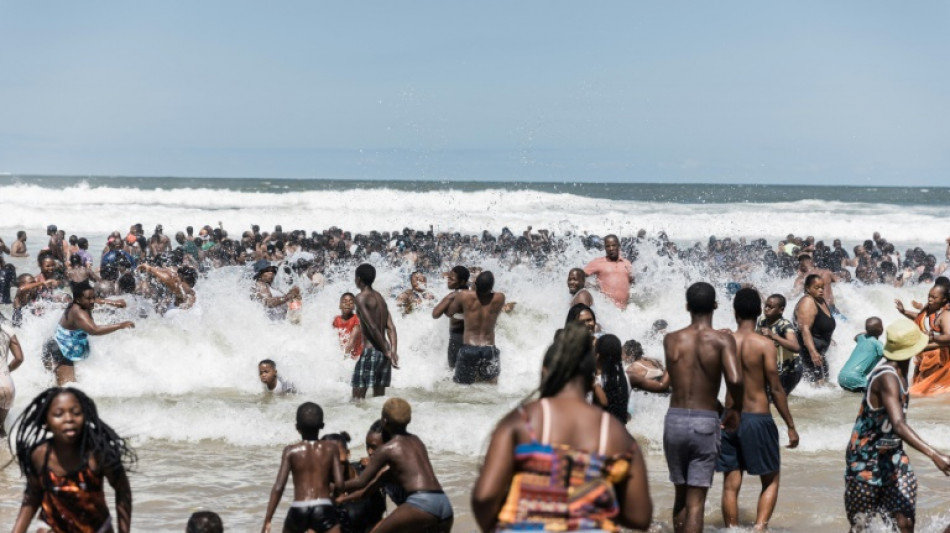
-
 Milan star Pulisic to skip USA's summer games
Milan star Pulisic to skip USA's summer games
-
G7 finance talks end in show of unity despite tariff turmoil
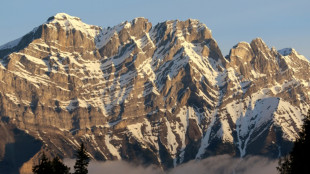
-
 Hamilton says Ferrari 'running out of time' to save season
Hamilton says Ferrari 'running out of time' to save season
-
DR Congo ex-leader Kabila loses immunity to 'treason' probe

-
 Trump hosts gala for memecoin buyers despite corruption concerns
Trump hosts gala for memecoin buyers despite corruption concerns
-
Heidenheim recover to draw with Elversberg in Bundesliga playoff
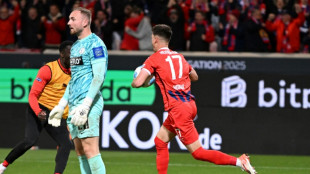
-
 Israel PM names new security chief, defying attorney general
Israel PM names new security chief, defying attorney general
-
State Dept says Chevron must leave Venezuela, even as American freed
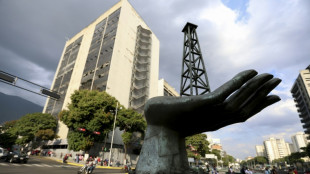
-
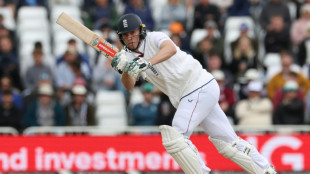 England's Crawley glad to 'repay faith' with Zimbabwe hundred
England's Crawley glad to 'repay faith' with Zimbabwe hundred
-
US braces for intense hurricane season as climate agency is gutted
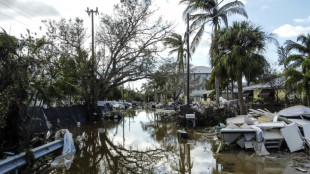
-
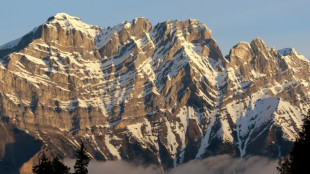 G7 finance chiefs say economic policy uncertainty is easing
G7 finance chiefs say economic policy uncertainty is easing
-
Italy, other EU states urge rethink on European rights convention
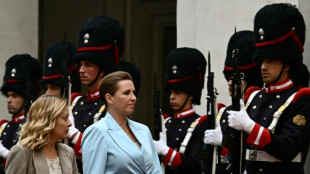
-
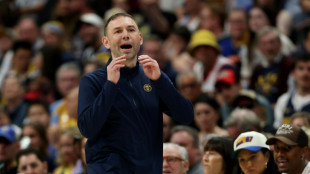 Nuggets confirm Adelman as permanent head coach
Nuggets confirm Adelman as permanent head coach
-
Birthday boy Djokovic avenges Arnaldi loss in Geneva
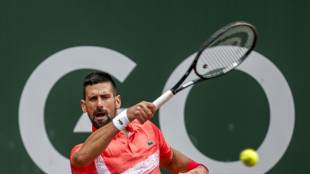
-
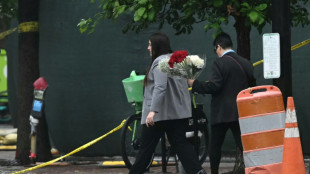 Israel blames Europe after embassy staff shot dead in US
Israel blames Europe after embassy staff shot dead in US
-
Trump admin sows doubt over vaccines in 'Make America Healthy Again' report
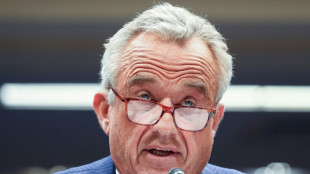
-
 Marc Marquez says Silverstone focus is protecting MotoGP lead
Marc Marquez says Silverstone focus is protecting MotoGP lead
-
Madrid ex-mayor's family regains art lost to Franco regime
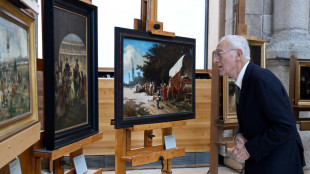
-
 Marsh ton powers Lucknow to IPL upset over Gujarat
Marsh ton powers Lucknow to IPL upset over Gujarat
-
US govt revokes Harvard's right to enroll foreign students
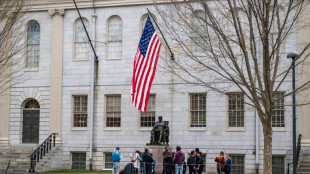
-
 New two-stop rule could produce 'crazy' Monaco race, says Verstappen
New two-stop rule could produce 'crazy' Monaco race, says Verstappen
-
Power says scandal-hit Penske ready to 'move forward' at Indy 500
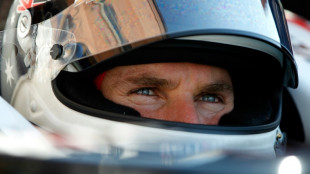
-
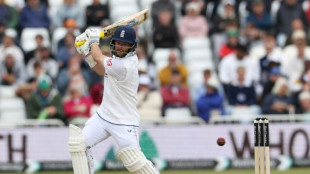 Top three hit hundreds as England run riot against Zimbabwe
Top three hit hundreds as England run riot against Zimbabwe
-
Disney suspends Venezuelan workers after protected status revoked

-
 Rapper Kid Cudi testifies of torched car in Sean Combs trial
Rapper Kid Cudi testifies of torched car in Sean Combs trial
-
California's electric car drive put on blocks by US Senate

-
 Raphinha extends Barca deal until 2028
Raphinha extends Barca deal until 2028
-
Verstappen skips Brad Pitt F1 movie to stay with family
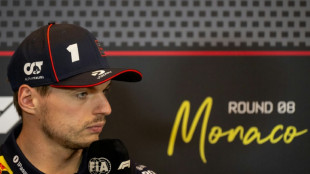
-
 France detains 55 men in child sex abuse crackdown
France detains 55 men in child sex abuse crackdown
-
Son of former US coach Berhalter in squad for June friendlies

-
 Italy court makes 'historic' ruling for same-sex mothers
Italy court makes 'historic' ruling for same-sex mothers
-
Hijabs onscreen, critics offscreen for Iran film in Cannes
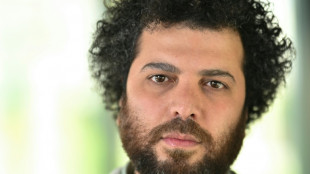
-
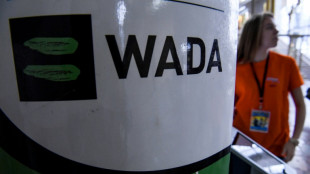 Anti-doping bodies condemn 'dangerous' drug-fueled Enhanced Games
Anti-doping bodies condemn 'dangerous' drug-fueled Enhanced Games
-
Kooij turns on the speed to take Giro sprint
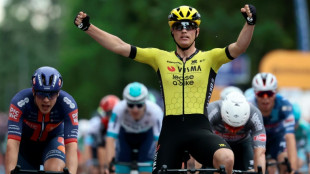
-
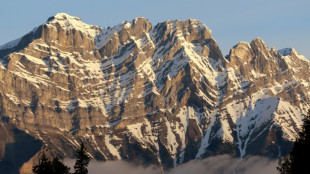 G7 finance chiefs push for consensus despite Trump tariffs
G7 finance chiefs push for consensus despite Trump tariffs
-
Stock markets sluggish as Trump tax cuts clear House

-
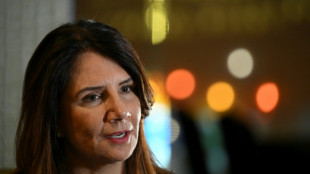 Tariff wars will hamper climate efforts: COP30 CEO
Tariff wars will hamper climate efforts: COP30 CEO
-
PSG sporting director Campos extends contract to 2030
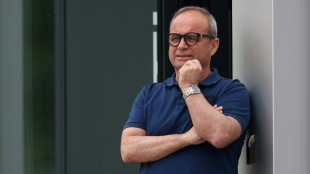
-
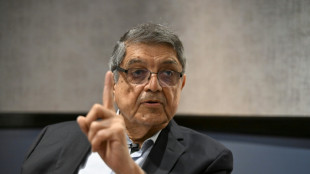 Nicaraguan 'dictatorship' is doomed, says exiled author
Nicaraguan 'dictatorship' is doomed, says exiled author
-
Two Israeli embassy staff shot dead in Washington

-
 UK agrees deal over Chagos Islands despite court challenge
UK agrees deal over Chagos Islands despite court challenge
-
Bath geared up for 'one-off' Challenge Cup final
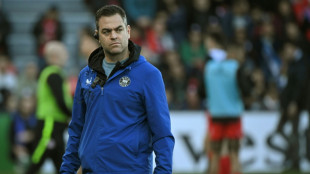
-
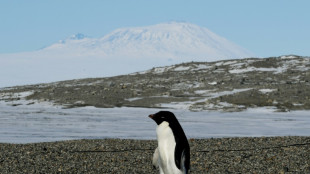 The surprising climate power of penguin poo
The surprising climate power of penguin poo
-
Duckett and Crawley lead England run-spree against Zimbabwe
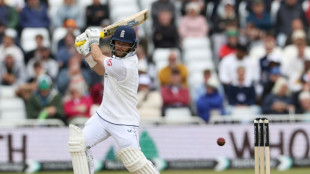
-
 Xiaomi launches new advanced in-house mobile chip
Xiaomi launches new advanced in-house mobile chip
-
Trump administration to release 'Make America Healthy Again' report
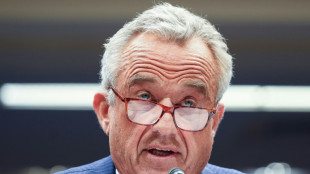
-
 Pope's call to tame AI sets tone for Christian leaders
Pope's call to tame AI sets tone for Christian leaders
-
Alcaraz plays Nishikori in Roland Garros opener as Swiatek gets tough draw
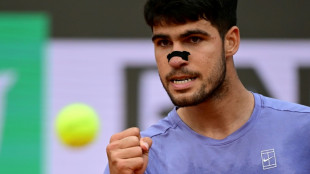
-
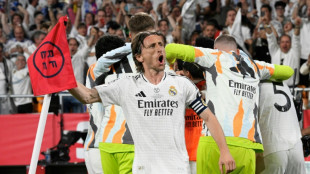 Modric to leave Real Madrid after Club World Cup
Modric to leave Real Madrid after Club World Cup
-
Austria's Eurovision winner wants 2026 edition 'without Israel'


South Africa battles drownings with survival pools
A red shipping container lies in a school playground in a small South African town.
The imposing steel structure has an unexpected function -- to help save youngsters in a country gripped by an epidemic of drownings.
Within it is a swimming pool -- the only one within 25 kilometres (15 miles) around -- where children will learn the basics of how to stay afloat.
South Africa has thousands of kilometres of beaches, and in rich neighbourhoods, swimming pools dot the gardens.
Yet just one South African in seven knows how to swim, and each year around 1,500 people drown, according to a local rescue institute -- an average of four individuals per day.
In the Cape Town suburb of Riebeek-Kasteel, Meiring primary school, which hosts the container, has suffered its own drowning tragedy.
A framed photo in the entrance hall pays tribute to a 12-year-old lad who perished in a dammed lake at a nearby farm in 2021.
"If he just knew how to float in water, he could have saved his own life," said school principal Brenton Cupido.
"It gets very hot here, especially in summer, and our (pupils) flock every afternoon, unsupervised, to the nearby dams. But most of them can't swim."
The toll is a "huge public health issue" rooted in historical inequalities, said Jill Fortuin, director of drowning prevention at the National Sea Rescue Institute (NSRI).
Most fatalities are black South Africans.
"Apartheid is a big portion of the problem," said Fortuin, herself a person of mixed heritage.
Under segregation, swimming pools and holiday beaches were limited to the white minority, providing little incentive for the majority to learn how to swim.
Three decades after the advent of democracy, stark inequalities remain, with limited infrastructure and opportunities.
"Government schools, where most disadvantaged people go to, often do not have swimming pools," said Fortuin.
Faced with choosing between putting food on the table or paying for swimming lessons, most families opt for the former, she added.
"Swimming is not seen as a priority".
- 'Safe water' -
To help tackle drowning, NSRI has deployed 1,350 volunteer lifeguards across the country's beaches and installed 1,500 bright pink buoys on various water bodies to help rescuers aid people in distress.
But prevention is paramount, said the group, whose awareness-raising campaign has reached more than three million people in recent years.
With climate change fuelling floods and heatwaves, the need increases, said Fortuin.
The "Survival Swimming Centre" pool installed at Meiring is the brainchild of Andrew Ingram, a 58-year-old drowning prevention manager.
In their homes, some of "the children... don't even have toilets that flush. So how on earth are they going to have a swimming pool?" he asked.
"We provide safe water and somebody to teach them."
The container pool is six metres (20 feet) long and one metre (3.25 feet) deep.
Children are taught how to help friends in difficulty, control breathing, orient themselves under the water and use an empty bottle as an emergency buoy.
Half of the school's children now know how to float -- and most of them are the first in their families to learn, said Cupido.
Jonathan Van der Merwe used to be very "concerned" that his daughter, who was one of the first to take lessons at Meiring's survival pool, might get into trouble in one of the many ponds around the wine farming area.
"Now, I'm very calm and relaxed about it," he said.
A sister container will soon be installed at a school in KwaZulu-Natal, an eastern province ravaged by deadly floods last year. One more is already in place in Eastern Cape province.
Petro Meyer, 62, NSRI's water safety instructor, has introduced about 100 students aged between six to 12 to survival swimming.
"You should see their smiles when they realise they're floating by themselves for the first time," she said. "We want to create a new culture in these kids."
H.E.Young--AMWN